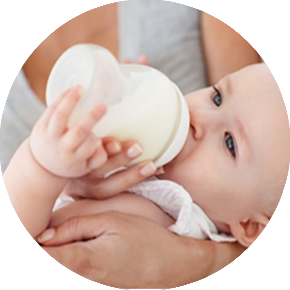Health Lives In Your Mind, Not In Your Genes: Parents As Genetic Engineers

 Butter is not evil. I bet you've heard that. Many things we hold to be true are often disproven by science. So what if I told you that what you learned about genes and DNA in school is totally outdated? Just plain wrong.
Butter is not evil. I bet you've heard that. Many things we hold to be true are often disproven by science. So what if I told you that what you learned about genes and DNA in school is totally outdated? Just plain wrong.
Geek alert: I love, love, love thinking about genetics. It is fascinating — and guess what? If you start thinking about genetics, too, what I'm about to teach you will change your life and the health of your kids. And then basically all of the future offspring of your offspring. And that's a lot of people.
Genetic theory has been updated and the news is gonna rock your world! One of the most exciting things in science today, to me, is the developing field of epigenetics.
Some background: For years, the Powers That Be said your genes dictate your current and future health. The old view is that our DNA is a library of genes and whatever genes you inherit, you express. For example, if you inherit the gene for heart disease, you will express this gene and are highly likely to develop the disease. Thus, your inherited genetic blueprint is static and fixed. The genes direct your health, life and everything. We are at the mercy of our genes.
The new understanding (epigenetics) is that you do have a library of genes, but you have control over their expression. You may inherit the gene for heart disease, but your internal bodily environment can be such that it is either expressed or not. Whether the gene is "on" or "off" is not hardwired, but interactive. And it's something you can influence.
Epigenetics refers to "above" the genome. The scientific understanding of epigenetics is that genes are responsive to your thoughts and life choices.
The great news for you is that only 1% of all illness is hardwired. 99% can be affected by you and your internal environment.
So what is this environment you can control? It's the chemical soup in your body — including hormones, proteins, endorphins, stress chemicals, growth factors, insulin, and more. We are essentially skin-covered petri dishes. A human being is a community of 50 trillion cells that bathe in a chemical soup.
And to make it simple, there are two choices to create your internal petri dish. These are trust and fear. These two mindsets create a very different chemical soup surging through your body. A brain perceiving trust creates a culture medium that grows, develops, has a healthy and controlled immune response, and creates a healthy body.
A fearful brain goes into a stress response and releases stress hormones and inflammatory chemicals, stops cells from growing and results in a contracted body —and disease results. Bruce Lipton, in his groundbreaking book "The Biology of Belief," has a chapter named, "Parents as Genetic Engineers." That's a fascinating idea, but I wanted more specific instructions: How could I be a genetic engineer for my child? The question became a springboard for my work (and kind of an obsession).
Dr. Lipton states that our minds interpret the world and release the chemistry that controls our behavior and biology to match our perception. (It's okay if you have to reread that statement — I did, several times.) After much research and deep thought, I came to a conclusion:
It's easy-peasy to be a parental genetic engineer: Choose and teach trust in the body's abilities instead of fear about the body's failings.
Why? 'Cause trust and love create a soup of health, and fear just spoils the soup. So ask yourself this: Am I the parent who obsesses over the hand sanitizer or the one who lets my kid eat the morsel that drops on the floor?
Are you creating a narrative for your child that gives them the confidence that their body is self-healing and smart, or are you giving them a narrative that their body can't be trusted and disease is lurking around the corner?
Create the narrative of trust and you'll change the life and health of your family.

